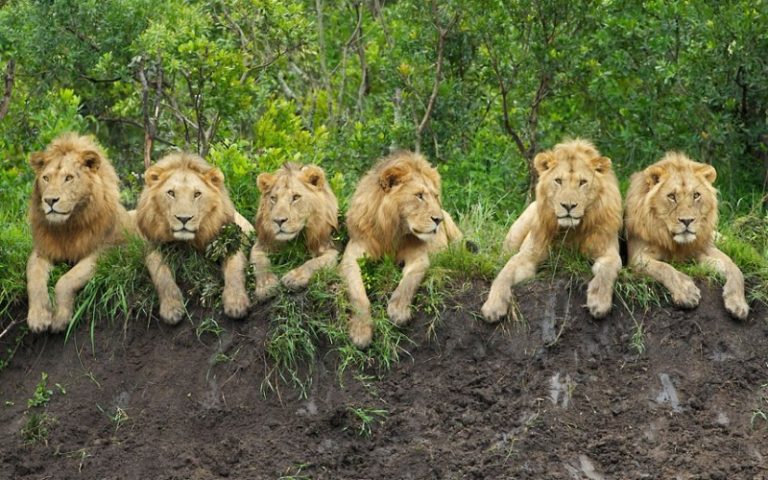Wildlife conservation experts in Africa are worried over the impact of the COVID-19 pandemic on wildlife on the continent with adverse effects on tourism as well. Wildlife is the leading source of tourist revenue in Africa through photographic safaris. Big mammals, mostly lions, are the leading attractions, pulling big crowds of foreign tourists to Africa with good revenue generation to respective safari destination countries within the continent.
Lions are the most attractive wild animal pulling foreign visitors in East and Southern African states where these big cats are found living in the wild, making them a biggest draw card for tourists visiting African wildlife parks. Other than lions, African governments are now running a campaign to save the black rhino from total extinction. Rhinos are one, among leading draw cards for tourists visiting East and Southern African region.
But the outbreak of COVID-19 pandemic had posed a challenge to the protection of Africa’s iconic wildlife species. Key wildlife parks in Africa are going without a single tourist after cancellations of air transport in Europe, the United States and Southeast Asia, the leading sources of tourists visiting the African wildlife resources.
Kenya and Tanzania in East Africa are counted among African safari destinations where wildlife conservation in National Parks is facing a serious challenge.
Tanzanian Deputy Minister for Tourism and Natural Resources Mr. Constantine Kanyasu had this week expressed his feelings over current situation in wildlife conservation which depends tourist revenues to fund the parks for protection of the wild animals and nature for tourism.
Kanyasu said that revenue accrued from tourism is spent for wildlife conservation programs, but lack of tourists calling to these parks for photographic safaris would greatly affect conservation of wildlife and nature. The African Wildlife Foundation said in its report few days ago that the protection of Africa’s iconic wildlife species should remain a focus even as the continent grapples with disruptions linked to Covid-19 pandemic.
Kaddu Sebunya, chief executive officer of Nairobi-based African Wildlife Foundation (AWF) said that proactive measures are required to strengthen protection of the continent’s wildlife and their habitats amid competing priorities like the fight against the disease.
“The world is understandably trying to reduce the impact of COVID -19 and respond to the critical short-term needs, “Sebunya told the Chines News Agency, Xinhua. “But we must not forget that wildlife and ecological health is a critical resource for economic recovery in Africa once this pandemic is over,” he added. Sebunya acknowledged that the Covid-19 pandemic will adversely impact wildlife conservation in Africa amid falling tourism revenues and the risk of poaching alongside human-wildlife conflicts.
“Given extremely limited resources, governments are likely to abandon wildlife protection in the short to medium term and redirect resources to humanitarian considerations,” Sebunya in Kenyan capital. He said that critical wildlife conservation programs could face funding cuts due to revenue shortfalls occasioned by Covid-19 disruptions.
“Some protected area managers have said that they only have three months’ worth of funding reserves after which they might have to cut some programs entirely,” said Sebunya.
The AWF senior official said that it is possible for Africa’s wildlife to thrive amid disruptions triggered by Covid-19 pandemic once governments prioritize enactment of policies that promote ecologically sensitive economic development. “Wildlife will thrive in Africa if correct decisions are made today about Africa’s development trajectory,” said Sebunya. Sebunya urged African governments to allocate more funding towards environmental conservation and limit investments in projects that harm ecosystems.





